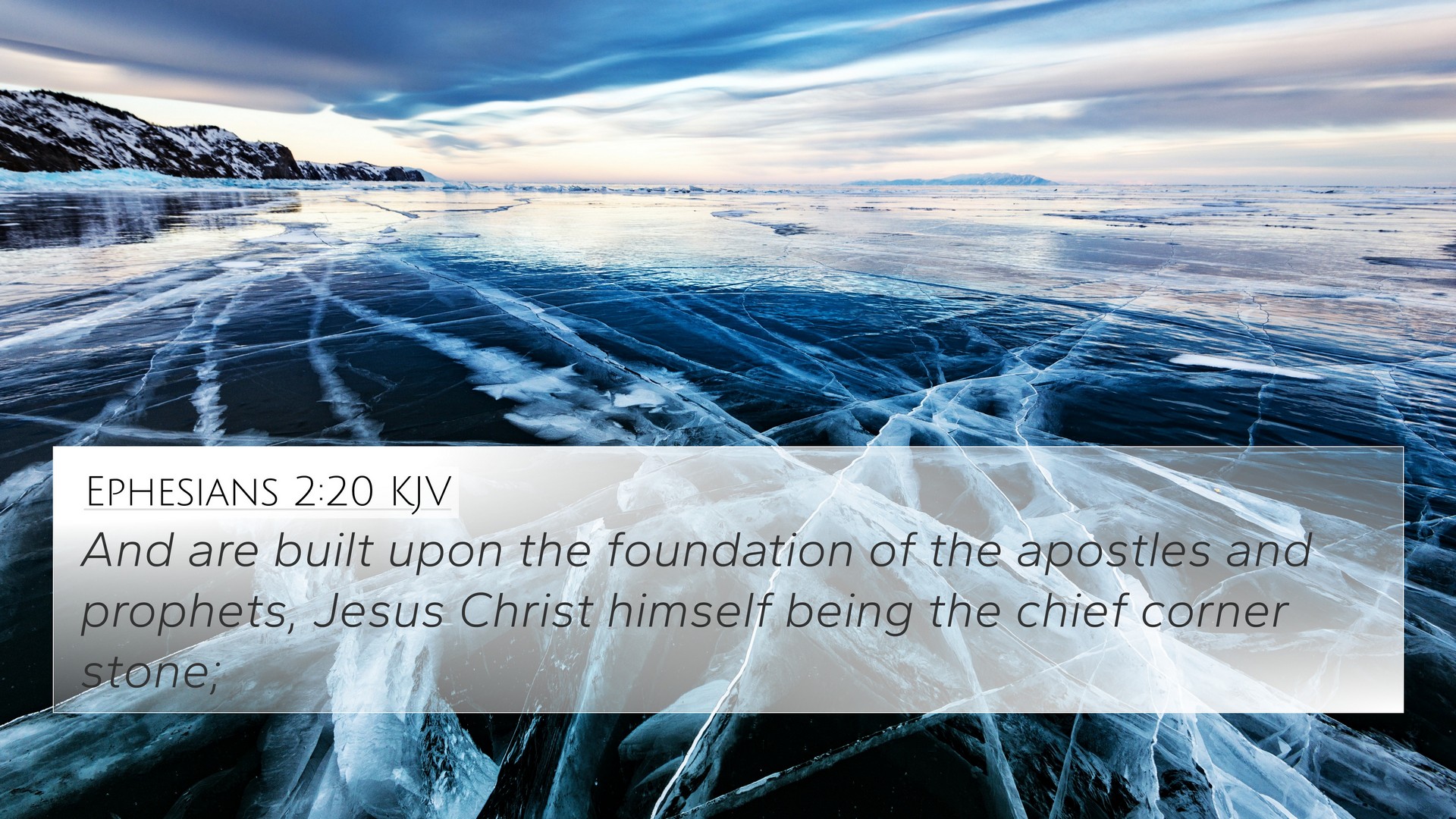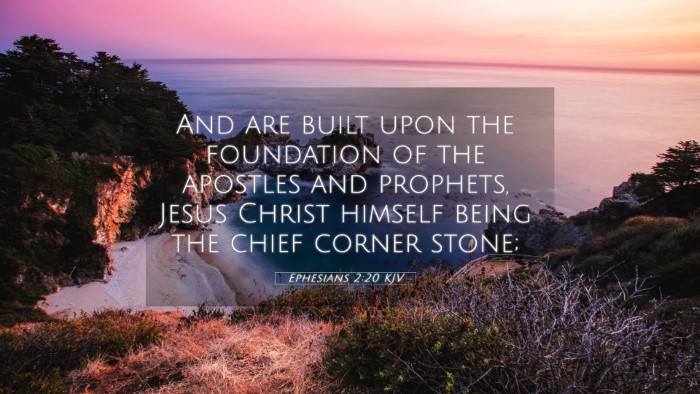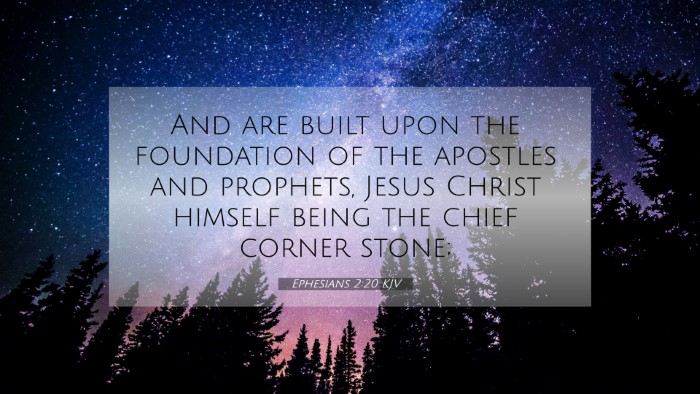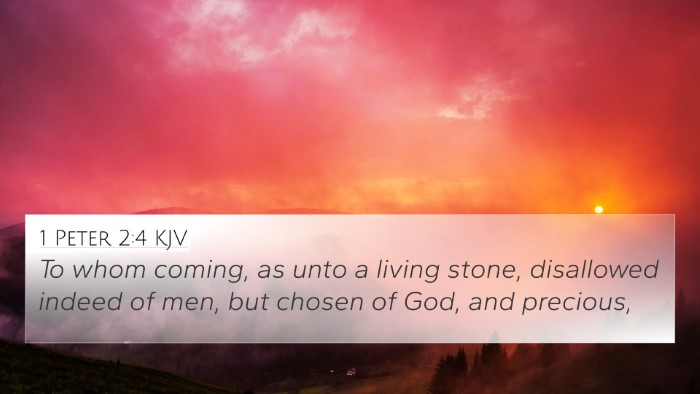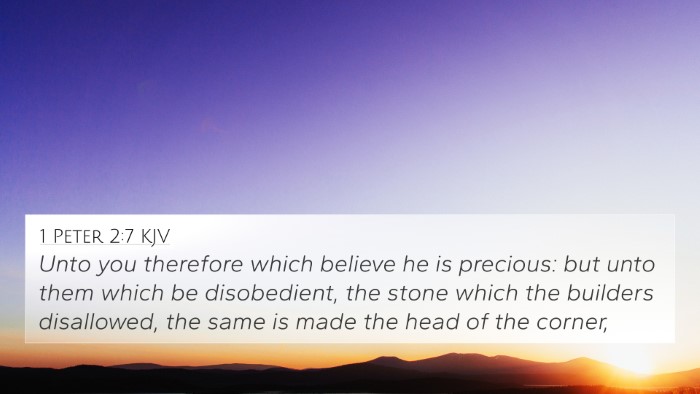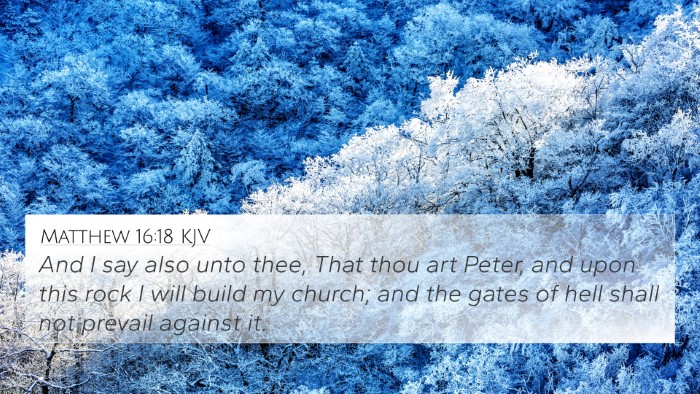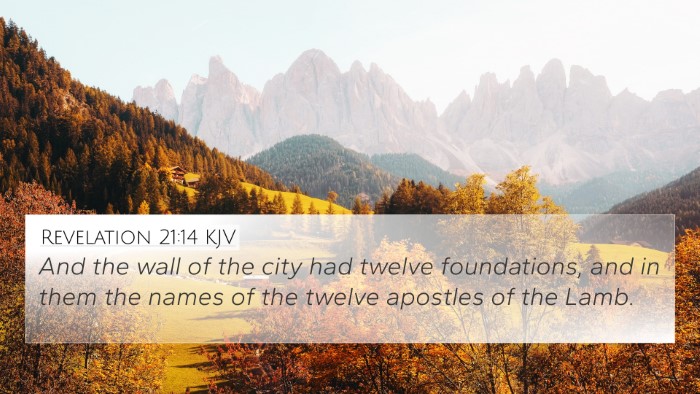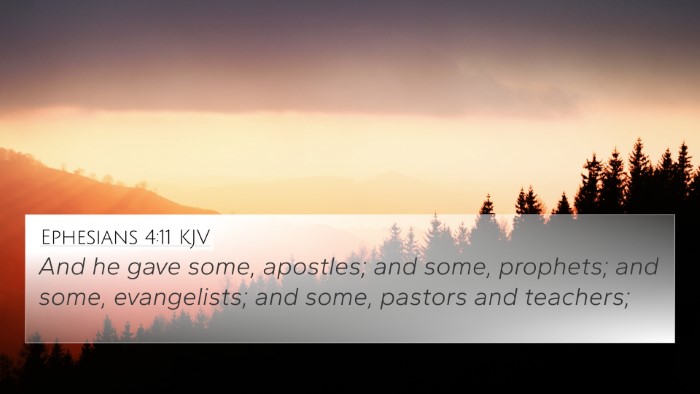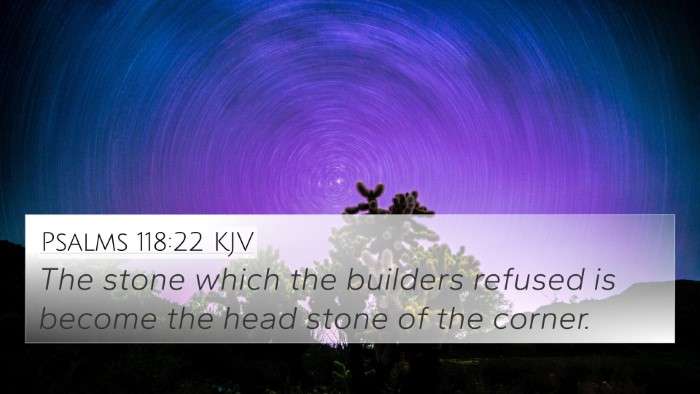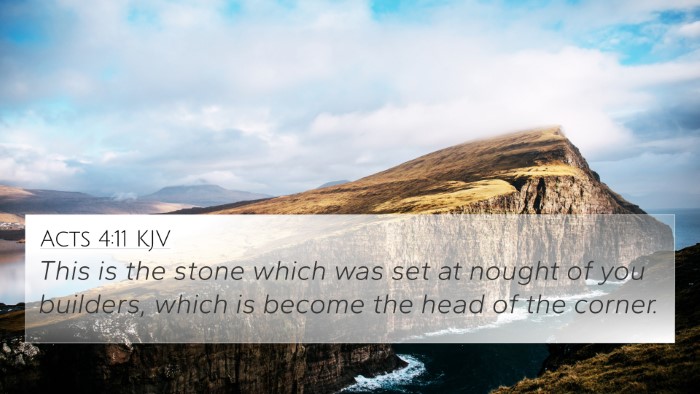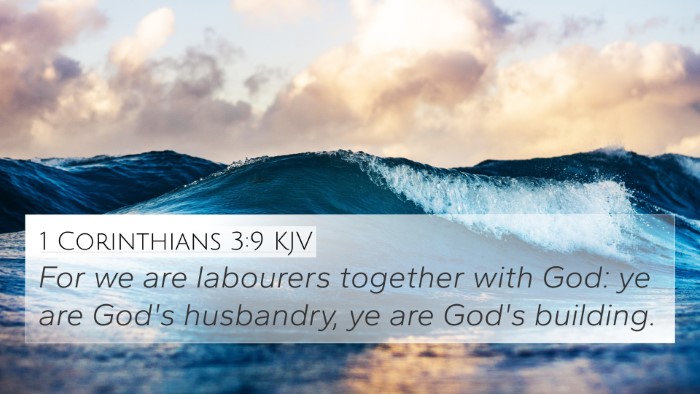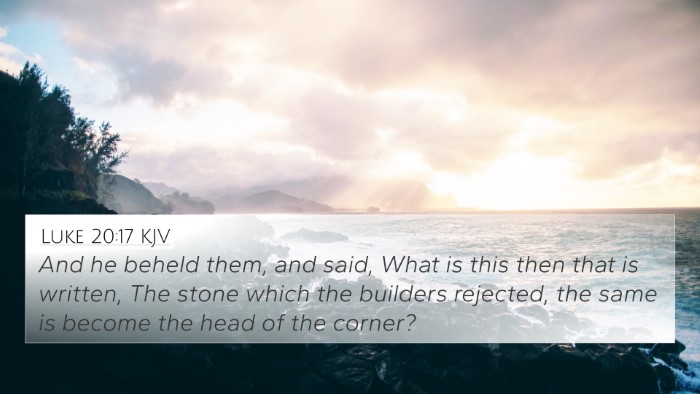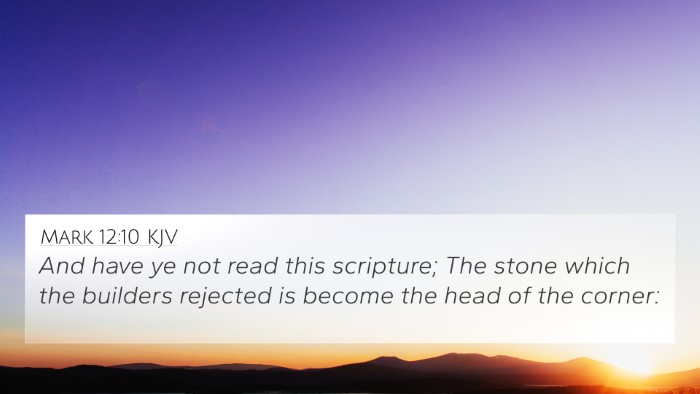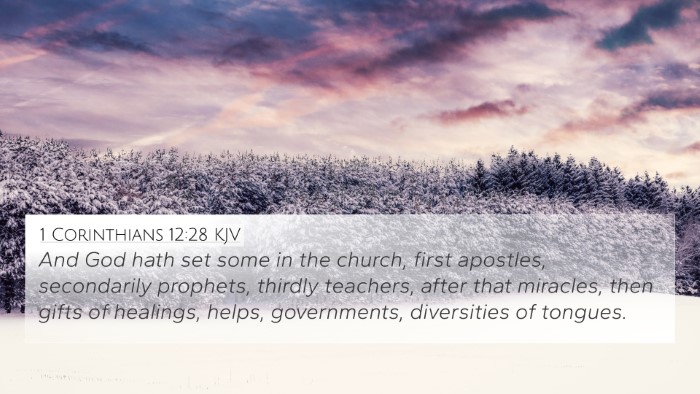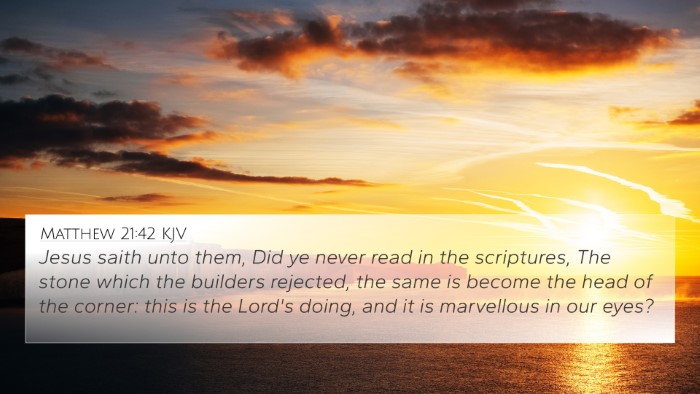Ephesians 2:20 - Overview and Meaning
Ephesians 2:20 states, "And are built upon the foundation of the apostles and prophets, Jesus Christ himself being the chief corner stone." This verse emphasizes the foundational role of both the apostles and prophets in the establishment of the Christian faith, with Christ as the essential cornerstone.
Significance of the Verse
This passage highlights several crucial theological points:
- The Foundation of Faith: The verse mentions the apostles and prophets, showing their role in laying the groundwork for Christian doctrine, guiding believers through their teachings and examples.
- Christ as the Cornerstone: Christ is identified as the chief cornerstone, which is foundational for the building of the church; without Him, the structure would not stand.
- Unity in Faith: This verse also signifies the unity that believers have in Christ, stressing that they are all part of a larger spiritual structure, the church, built on the teachings of the apostles and prophets.
Commentary Insights
The insights from various public domain commentaries provide rich layers of meaning:
Matthew Henry's Commentary
According to Matthew Henry, this verse signifies the importance of both the Old Testament prophets and the New Testament apostles in the structure of the church. He emphasizes that the church is not just a physical building but a spiritual house composed of living stones (1 Peter 2:5), with Christ being the key to its stability.
Albert Barnes' Notes on the Bible
Albert Barnes interprets "the foundation" as the doctrine they preached. He points out that just as physical buildings require solid foundations, so too does the church require the solid teachings of these leaders. Christ, as the cornerstone, ensures the integrity and purpose of the church.
Adam Clarke's Commentary
Adam Clarke notes the significance of a cornerstone in construction, being the stone upon which the other stones align. Thus, Clarke emphasizes that Christ is not only the cornerstone but the unifying factor that aligns all believers within the church.
Bible Cross-References
This verse connects thematically and contextually with various other scriptures. Below are key Bible cross-references related to Ephesians 2:20:
- 1 Peter 2:4-5: Describes believers as being living stones, built up as a spiritual house.
- 1 Corinthians 3:11: "For other foundation can no man lay than that is laid, which is Jesus Christ."
- Acts 2:42: Early believers devoted themselves to the apostles' doctrine and teachings.
- Matthew 7:24-25: The importance of building on a solid foundation, illustrating the wise man who built his house on the rock.
- Isaiah 28:16: Prophetically references God laying a cornerstone in Zion, affirming Christ's role.
- Colossians 1:18: Discusses Christ's preeminence in the church, indicating His foundational role.
- Revelation 21:14: Mentions the twelve foundations of the walls of the New Jerusalem, named after the apostles.
Thematic Connections in Scripture
The connection between Ephesians 2:20 and other Bible verses creates a thematic dialogue throughout the scriptures. It reflects the unity of message in the Old and New Testaments regarding God's plan for salvation through Christ:
- Connecting Old and New Testament: The references of prophets in the Old Testament indicate how they pointed towards Christ and the church's establishment.
- Cross-Referencing Psalms with New Testament Teachings: The Psalms often anticipate Christ's coming and His role as the cornerstone (Psalm 118:22).
- Inter-Biblical Dialogue: Ephesians’ teachings find parallels in the Gospels, especially regarding the authority and establishment of Jesus as the head of the church.
Study Methods and Resources
Incorporating tools for Bible cross-referencing can enhance understanding of Ephesians 2:20. The following methods can aid in discovering thematic connections:
- Bible Concordance: Utilize a concordance to find where specific keywords or themes repeat throughout scripture.
- Bible Cross-Reference Guide: These guides can help identify linked passages and give context.
- Cross-Referencing Bible Study Methods: Implement methods such as thematic studies or chapter parallels to delve deeper into related scriptures.
- Bible Reference Resources: Additional resources like commentaries or notes can provide richer insights into cross-referenced themes.
Conclusion
In conclusion, Ephesians 2:20 stands as a critical verse outlining the foundational truths of the Christian faith. By exploring its meaning and its interconnections with other scriptures, believers can gain a deeper understanding of their faith and its historical roots. Engaging with the Word in this way not only enriches personal study but also fosters a greater appreciation of the harmonious nature of biblical texts.
